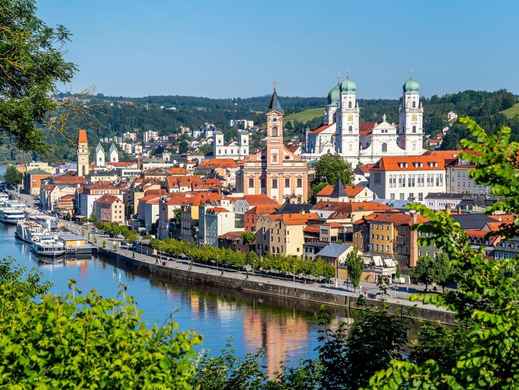


Stuttgart
Europe
/
Germany
/
Stuttgart
Stuttgart, a picturesque city in southwest Germany, surprises visitors with its verdant valleys and surprising industrial prowess. Its unique topography of hills, valleys, vineyards, and forests, offers a distinct urban landscape, boasting a favorable climate of warm summers and moderate winters, perfect for year-round exploration.
Stuttgart enjoys global recognition as the birthplace of Mercedes-Benz and Porsche, boasting a strong automotive identity. Besides its prosperous industrial heritage, this city surprises with a lively cultural scene, sprawling green spaces, and rich Swabian traditions that blend seamlessly with technological advancement, creating a distinct charm that is uniquely Stuttgart.
The Schlossplatz, a stunning square overlooked by the New Palace, is the city's showpiece, closely rivaled by its impressive wine culture. Stuttgart is one of the few significant European cities with vineyards within its limits offering excellent local wines. In terms of local cuisine, the city's signature dish, Spätzle (egg noodles typically served with cheese or gravy), encapsulates the fulfilling nature of Swabian food.
Key attractions encompass the hi-tech Mercedes-Benz Museum, which showcases not only automobile history but also the progression of human mobility. Similarly, the Killesberg Park's scenic beauty and expansive greenery, crowned by a tower offering sweeping panoramic city views, are must-visit sites. The strikingly minimalist Stuttgart Public Library is an Instagram hotspot popular among Gen Z and Millennial travelers.

Travel Tips for Stuttgart
What you need to know before traveling here
Getting Around Stuttgart
A guide to Stuttgart's local transportation
Stuttgart's comprehensive rail network covers all key city areas. Tickets can be purchased from machines at the stations or via the VVS app. A single ticket costs roughly €2.50, but day passes at €7 provide more economical for extensive travel. Trains operate frequently from early morning 5 AM to midnight.
Practical Tips for Stuttgart
Things to prepare and best way to visit
The optimal times to visit Stuttgart are in late spring (May-June) or early autumn (September-October) when you can enjoy comfortable weather and lesser crowds. The Stuttgart Beer Festival held between September and October is also a significant event worth attending.
Yes, particularly in tourist-centric areas and among the younger populace. Nonetheless, acquiring a few basic German phrases can be quite useful in less touristy neighborhoods.
Stuttgart ranks as one of the safest major cities in Germany. Regular safety measures are standard, but the overall security even during nighttime is considerably high.
The most cost-effective and reliable option is the S-Bahn (S2 or S3), which offers direct service from the airport to the city center in about 30 minutes.
Due to German law, most shops remain closed on Sundays. However, stores in train stations, some bakeries, and restaurants remain operational.
See All Practical Tips for Stuttgart

Explore Stuttgart
Create your itinerary with our top picks below

Travel Tips for Stuttgart

Explore Stuttgart
More Destination Near Stuttgart





































 Facebook
Facebook Instagram
Instagram TikTok
TikTok Youtube
Youtube Telegram
Telegram
